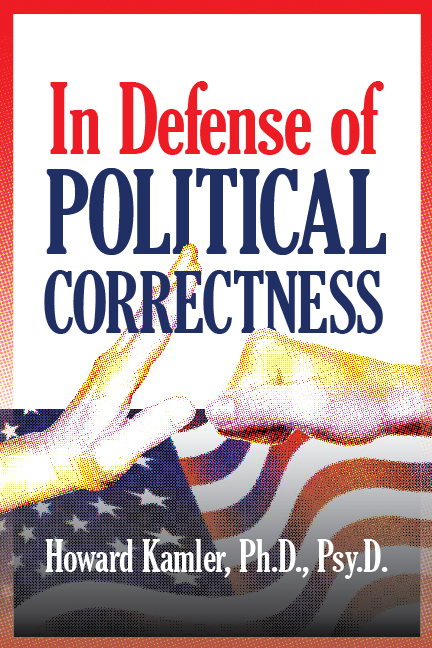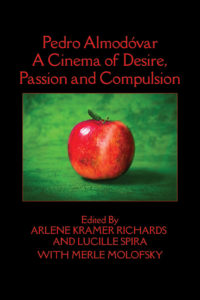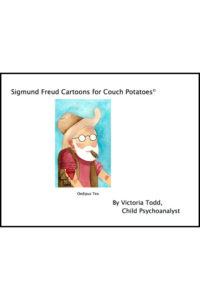In Defense of Political Correctness by Howard Kamler
$21.95
ISBN: 978-1-949093-63-6
Click Here to Purchase the eBook of this Title on Amazon
The idea of political correctness has had many detractors of all political stripes; none, though, as unrelenting as conservatives, most notably the Trumpers. For years, they have slammed the idea of political correctness as a way of undermining all liberal causes associated with it, causes they consider nothing more than ideological PC-related slop—multiculturalism, climate change, gun reform, the development of a green economy, even the universal wearing of masks during a pandemic.
In this book, Howard Kamler sets his sights on how conservatives use their withering attacks against PC to sabotage one very special PC-related ideological cause. That would be the liberal defense of minority liberation around issues of race, gender, religion, and much more. Kamler paints a picture of how the conservative anti-PC diatribes are a thinly veiled bigoted project that is really aimed at denying minorities their rights altogether. He argues how, when properly understood, political correctness is not only an effective antidote to this conservative project, but also a sine qua non of any well-functioning democracy.
From the Introduction
Compared to Democrats, Republicans are pretty good political street fighters. Their disparaging wordplay seems endless: the “Democratic Party” becomes the “Democrat Party,” the “Affordable Care Act” becomes “Obamacare,” “Liberals” are forced to re-name themselves “Progressives,” and so on and so forth. Yes, they really know how to give their opponents a good poke in the eye. In the final analysis, these sorts of rhetorical ploys are relatively innocent; clever word-mischief meant to annoy, nothing more. That said, however, I think there is another more mean-spirited and dangerous kind of rhetorical strategy deployed by the political Right that is not only harming the opposition Left but also the American spirit. The ways in which conservatives have manhandled the term “political correctness” is a perfect example.
Mr. Trump and his cohort base have made much political hay with their harangue against all things PC. Trump has been rallying the troops to defeat all the weak-kneed, liberal, politically correct policies he claims are destroying our country. The Republicans’ charge that the Democratic Party has been taken over by an ethos of un-American radical liberal philosophy is nothing new. What is new is the particular hammer Mr. Trump wields to drive this point home. For the past few years especially, he and his fellows have managed to pound into public consciousness the idea that all the evils of liberal ideology can be wrapped up in a pithy expression: the liberal is “just so very politically correct,” or better, “too PC.” In virtually every one of his rallies since winning the presidency, Mr. Trump scans the crowd, sternly looks into the TV camera, aggressively points his finger at an imagined liberal Democrat, and finally sums up his scowling disgust (against the backdrop of his cheering base) with those two words. His accusation of all liberals as being “too PC” has been unrelenting. As a consequence, the expression has become so pejoratively charged that any clear literal meaning to it has been trivialized in the public consciousness, overwhelmed by the more incendiary emotional content that Mr. Trump and all of his fellow “too PC” critics have attached to it. “PC” becomes an emotional slogan standing for the idea that a terrible, evil violation has been done to the American psyche, one that needs to be dealt with severely. Indeed, all of Mr. Trump’s God-fearing supporters are encouraged to quake in their boots and pound their fists about what political correctness has done to all good—all “real”—Americans. Their hero Trump promises to come to their rescue and lead the charge to defeat this dangerous public scourge once and for all.
Okay, you get the picture. We would do well to take a deep breath here and move a step back from all the Sturm und Drang. Despite all this emotional hand wringing, there is really nothing so dangerous about political correctness. As properly understood, the idea has a clear, inoffensive, literal definition, as much as Donald Trump and his conservative allies would like it to appear otherwise. Their harangue only serves as a smokescreen for something far more insidious that conservatives don’t want the public to know; the true underlying motivation behind the critical charge of liberals being “too PC.” (Spoiler alert: an extreme case of what the smokescreen is trying to hide has to do with white supremacy.)
In this book I will peel away the layers of the “too PC” phenomenon and get at what’s really going on.[1] It will be a process. Let me say outright that I am an unapologetic defender of political correctness (as properly understood) who believes that the ongoing attacks against the concept’s viability will eventually subvert our democracy and its core ideologies. A strong charge, I know; but one of which I hope to convince the reader by the end of this book. With the goal of putting an end to this subversion, I shall argue forcefully against all those who would demean the PC concept. I will discuss how most of today’s debates surrounding political correctness, pro and con, revolve around what our laws, courts and culture-at-large norms have deemed as acceptable public behavior, beliefs and attitudes regarding the rights of minorities—that which is often referred to as politically correct minority social liberation ideology. In defending the pro side of this debate, I’ll argue that the very same people who oppose political correctness are also the ones who have taken dead aim against the cause of minority liberation, along with the laws and cultural norms that support it. Actually, much of their anti-PC energy is a kind of displaced venom for the ideology of minority liberation. I will then unpack what I see as a three-pronged strategy used to attack both the idea of political correctness and the liberation ideology it supports. The main players in this triple assault are principled conservatives along with bigoted conservative forces of racism, misogyny, homophobia and more. They share an underlying complaint: that political correctness holds them back from fully expressing who they are—from being allowed to voice their principles and/or their bigoted attitudes against minority liberation ideology. With Mr. Trump’s emergence on the current political scene as the stranglehold bearer of presidential power, constantly filling the airwaves with his never-ending stream of hateful invective aimed at all causes liberal—all causes having to do with political correctness—it has become apparent that these people feel they finally have license for their unrelenting assault on people of color, women, religious minorities, the LGBTQ community and others, whether for reasons of principle or—as is more often the case—out of unabashed bigotry. As we find ourselves in the throes of yet another election season, present-day America is a world in which political correctness and minority liberation are still both fair game and still both the centerpiece of Mr. Trump’s unending litany of complaint.
With all of this in mind, here is the outline of how I will proceed. My discussion will divide into four parts. Part I first provides some precision about what I mean and what I do not mean by political correctness—a definition, if you will. This is followed by a brief look at the broad context into which the concept of PC came into existence. We will see how political correctness grew up as a conceptual bolster for various forms of minority liberation ideologies. I then introduce some associated concepts that will provide both a richer understanding of the basic definition and, later, allow for a better overall understanding of the current-day debates about the worth of political correctness as it pertains to issues of minority social liberation.
The remainder of the book explores both understanding and critiquing the general harangue the concept of PC has come under by Mr. Trump and his ilk. Specifically, in Part II, I introduce the main players—generally speaking, social conservatives who find absolutely no value in political correctness—looking at their main complaints. In Part III, I shift the focus to examining the ways in which many of these same conservatives attack the minority liberation ideologies related to political correctness. Finally, in Part IV, I engage head-on in a defense of political correctness, wherein I spell out the many ways in which the social conservatives’ intentional misunderstanding of the concept not only has done unfair harm to the various kinds of minority social liberation movements, but also has irresponsibly weakened our democratic republic. I end the book with the suggestion that nothing less than a reinvigorated commitment to the idea of political correctness can save us.
[1] As a research psychoanalyst, I am interested in exposing its psychological defects. As an academic philosopher, I am interested in the logic of the concept and how it is used in political discourse.
In stock




